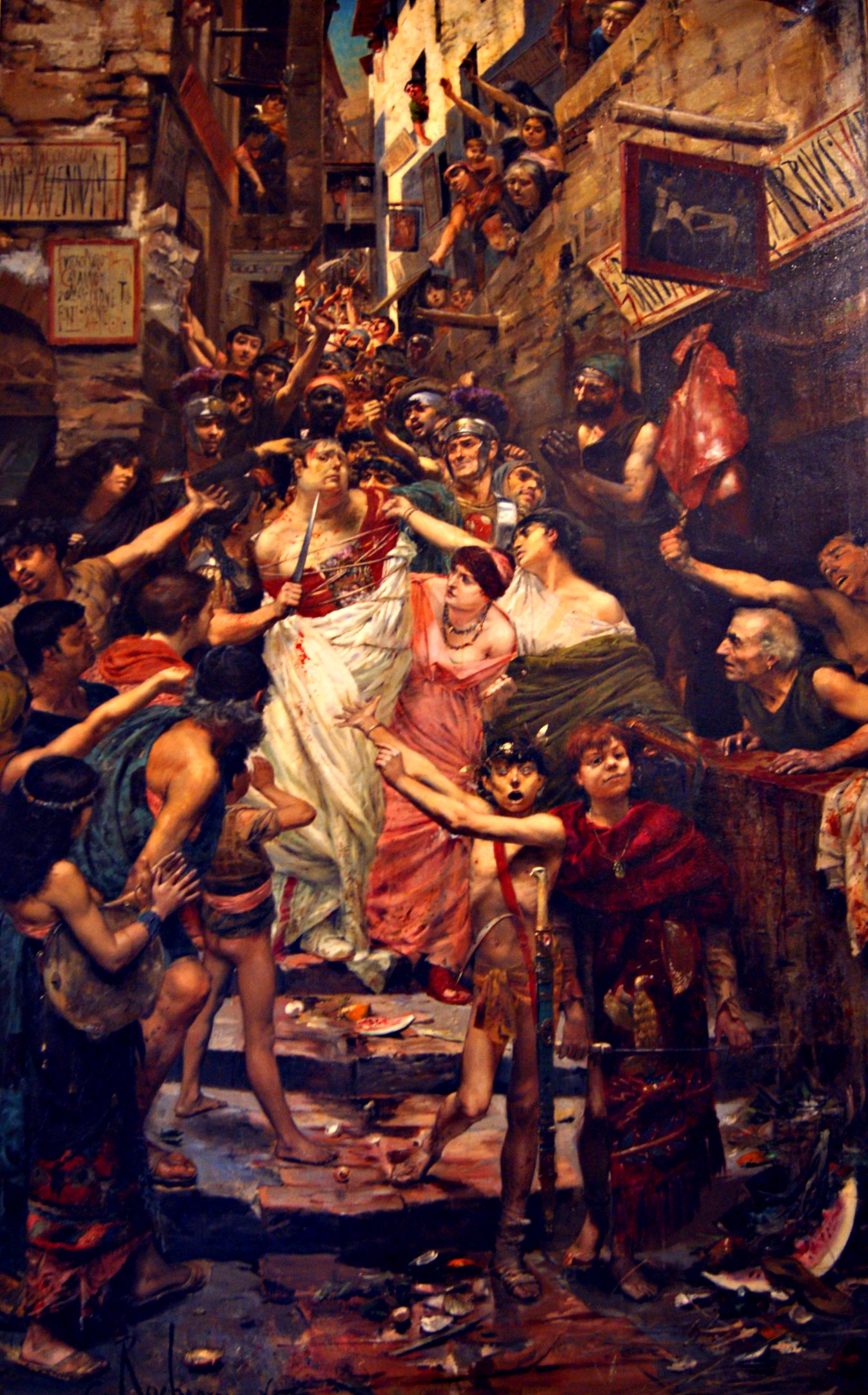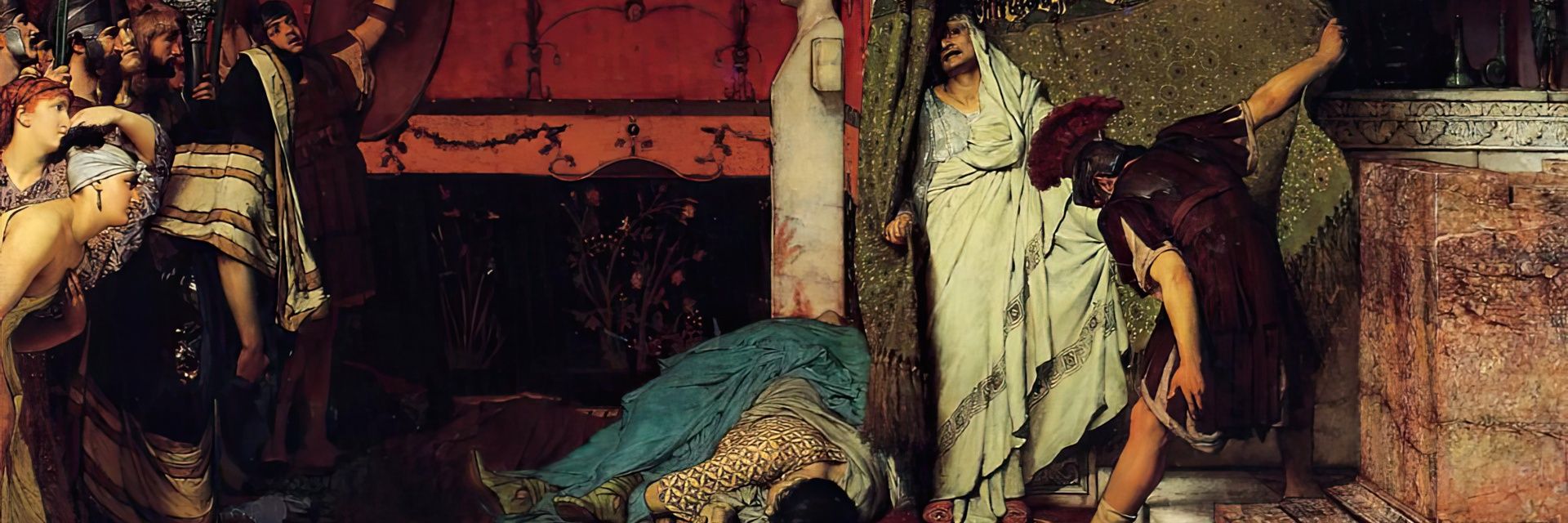Rome was the center of one of history’s great civilizations. But its emperors had to be constantly looking over their shoulders, lest they miss the approach of assassins.
◊
Ah, the allure of power. Real power. The kind wielded by kings and queens, dictators, sultans, and the emperors of ancient Rome. Some are born to sit on the throne, while others plot and connive to seize the cushioned seat they so crave. But you know the old saying: Be careful what you wish for. And when it comes to political power, no one should have heeded that warning more than those infamous Roman leaders who lusted to rule their far-flung empire.
It seems that, for the Roman rulers, attaining power was the easy part. Staying alive to exercise that total domination for a prolonged period was rather more problematic. And relinquishing it altogether almost never happened voluntarily.
In fact, according to renowned classicist – and host of MagellanTV’s Meet the Romans – Mary Beard, only one Roman emperor over a period of more than 300 years attempted to abdicate and avoid the usual end of the leader’s rule, i.e., death, often by violence. Beard appears to be referring to Vitellius (one of four Roman emperors in quick succession in 69 CE after Nero’s suicide), who planned to flee Rome when the proverbial writing was on the wall. But he made the mistake of trying to return to the palace one last time, and Vespasian’s henchmen caught and murdered him.
For more on the Roman Emperors, check out the MagellanTV Documentary I, Caesar: The Rise and Fall of the Roman Empire.
A Coin Flip of Fate in Rome’s Early Empire
From 27 BCE to 476 CE, Rome was ruled by a total of 77 emperors. During the Early Empire (from Augustus’s ascension in 27 BCE to Nerva in 193 CE) around 55 percent of the rulers died of natural causes. So, the chances of an emperor making it through his reign without dying violently were a little better than a coin flip landing on the side where he had almost certainly had his head imprinted. Not such bad odds by ancient Roman standards.
However, among those for whom the flipped denarius came up, shall we say, tails were Gaius (Caligula), murdered by members of his Praetorian guard with swords and daggers; Claudius, poisoned by niece and fourth wife Agrippina; Domitian, assassinated with daggers by court officials; and Commodus, villain of the movie Gladiator, who was strangled when poisoning failed.

Emperor Aulus Vitellius just before losing his head (Painting by Georges Rochegrosse, 1882; source: Wikimedia Commons)
Chances of Survival in the Late Empire Were Pretty Slim
The odds of an emperor surviving till a natural death declined precipitously in the Late Empire. Of the 59 Roman emperors from 193 to 476 CE, almost 75 percent died violently (or at least under suspicious circumstances). With the deck apparently stacked so fatefully against them, it’s hard not to wonder what these hyper-ambitious guys were thinking. Surely there were less perilous options available.
Among the rulers who met bitter ends during the Late Empire were Diocletion, suicide by starvation; Licinius, hanged on the orders of Emperor Constantine I; and Petronius Maximus, Roman emperor of the West, who was stoned to death by an angry mob after only 75 days in power.
While there are notable exceptions – Ceausescu in Romania, Gaddafi in Libya, among others – today’s tyrants and petty autocrats are more likely to enjoy a comfortable retirement or to find refuge in a sympathetic fellow ruler’s spare palace than they are to face a swiftly approaching mortality. They are fortunate not to have ruled the ancient world’s most treacherous empire.
Ω
Title Image: The assassination of Caligula and his wife, while new Emperor Claudius cowers behind a curtain. Painting by Lawrence Alma-Tadema, 1871 (Source: Wikimedia Commons)

